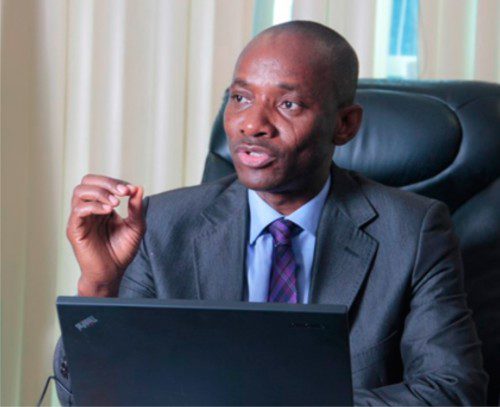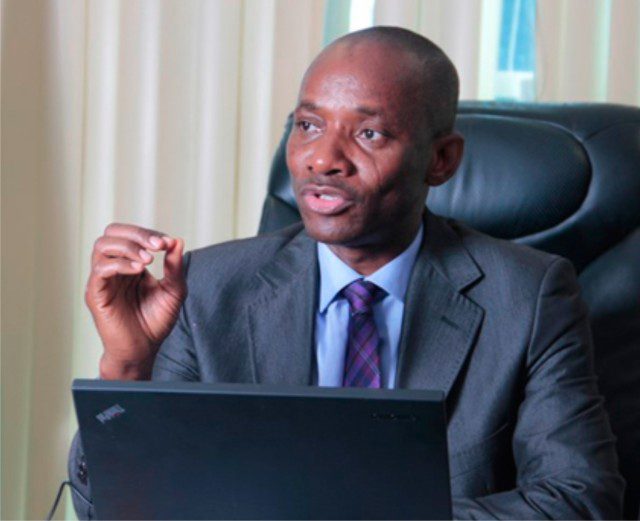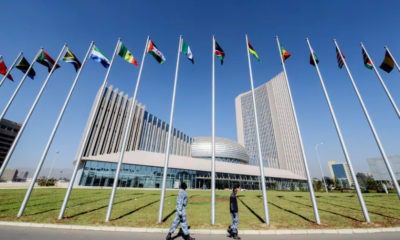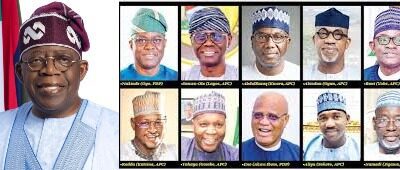Democracy & Governance
Democratising electricity regulation for Nigerian consumers -By Sam Amadi

One of the observable gaps in the current electricity market in Nigeria is the absence of knowledgeable, credible, and broad-based advocacy for electricity consumers. This is not to say there are no geographical or occupational clusters of electricity consumers, or even non-governmental organisations advocating for their own interests or the interests of their members or the interests of aggrieved consumers that contact them. Of course, such groups exist. The fact is that consumer voice is under-represented in the emergent electricity market.
The reasons for this deficit of consumer voice and power are that the individual consumers and consumer groups are too dispersed and too fragmented and their levels of engagement too superficial, too adversarial and too episodic to have the desired impact on outcomes in the sector.
Contrast the state of disempowerment of consumers with the powerful position of the service providers – generation, distribution and transmission companies in the electricity market, highly funded and organised. As operators, they have the incentives to gain better understanding of the technicalities of the industry, and they could afford the best of intellectual support to shore up their knowledge base and negotiation power. They are also better acquainted with the issues and the processes of the sector and have greater access to the decision-making process.
The sum of all these is that when compared to the consumers, the operators have a greater share of voice and better positioned to protect their interests and shape outcomes in the post-privatisation electricity market in Nigeria. Therefore, there is a deficit democracy in the electricity market when the ordinary processes of governance of an institution or system creates and reinforces the disempowerment of a critical stakeholder of that institution or system. In this case, the system is the Nigerian electricity market and the critical stakeholder disempowered is the consumer.
Ironically, the supposed beneficiary of the regulatory regime is the consumer as the law mandates the Nigerian Electricity Regulatory Commission, NERC, to protect the consumer’s access to adequate, safe, reliable and affordable electricity. In reality, democracy deficit is cured though redefining and redesigning the institutions so that the disempowered stakeholder is better mainstreamed in the service delivery and offered a platform to negotiate a better bargain.
The democracy deficit in the emergent electricity market in Nigeria post-privatization is the possibility of the loss of consumer voice in crafting the bargains that will define access and security of electricity supply in Nigeria. These bargains may take the form of technical, regulatory or financial arrangements for supply of electrical services in Nigeria.
The market rules, as presently designed, have empowered the operators of the Nigerian electricity market by giving them a ring-side ticket to all the governance institutions in the market. They have opportunity and resources to shape rules and decisions to their advantage. The consumers are not on the ring-side and are only to be affected by the decision.
This asymmetry does not protect the balance of power in the electricity market, which the regulator is to promote. Asymmetry of power also undermines the transparency and accountability that underline a fairly regulated electricity market. This democracy deficit is prevalent in many other emergent privatized electricity market where private firms have come and regulatory regime has not developed to minimize or moderate their power.
Curing this democracy deficit through consumer empowerment is becoming increasingly necessary to meet the interconnected challenges of energy security, pricing and sustainability. There is a pressing and urgent challenge to institutionalize consumer power, and by so doing create a balance of power in the Nigerian electricity market in other to ensure a smooth and orderly transition to a competitive and efficient electricity market. Today, such a transition requires peaceful cooperation between various stakeholders in the market.
As expected in every system, there will conflict of interests in this new market. As long as stakeholders are pursuing apparently divergent interests, order and progress will require a strong and legitimate conflict management system. Although the interests of operators and consumers are not eternally incommensurable, they are significantly divergent. Whilst the operators are more or else interested in reducing cost and increasing profit, consumers want better quality at lower costs.
But from a regulatory perspective, these diverse interests are converged at the point of providing more and better electrical services to consumers. Therefore, the Electric Power Sector Reform Act, 2005 mandates NERC to both ensure full cost recovery for efficient operators and allow consumer access to affordable electricity. So, cost recovery should be part of an affordable and fair electricity market. This dualism immediately sets off conflicts that require fair resolution. When operators demand for increase in tariff, consumers are expected to be worried.
The regulator ought to anticipate such tension and ensure that all interests have opportunity to engage in the ensuring deliberation. This is how democracy actually works in real life. It is all about deliberation and exercise of power. People congregate around clear interests and try to influence the institutions of the state to protect or promote those interests. This excites contestation from those who have divergent interests who seek for access to make their own case. As long as there is equal access and the processes of deliberation and decision making are structured to be open and unbiased and the contending groups are fairly matched, stability is maintained and outcome are legitimate.
NERC can take pride that it has tried to establish a regulatory regime that potentially provides equal access to all stakeholders in the electricity market. The Commission always organises public hearings to provide opportunity for consumers of electrical services and consumer groups to contest against operators and contribute their ideas towards shaping the regulatory landscape and policies of pricing, security and sustainability of energy in Nigeria.
NERC has also fully embraced the Freedom of Information Act and the requirement of proactive disclosures as a way of structuring a continuously open and unbiased platform for deliberation and decision making in this market. It has institutionalized anti-corruption practices and procedures to inoculate NERC against regulatory capture.
Yet, in spite of the noble intent and progressive actions of NERC, outcomes are still not fair to consumers. The reason is that the last, and perhaps, the most important component of architecture of democracy, symmetrical power relations, is still absent. Until consumers are organized and therefore able to contend against operators, the democracy bargain in the Nigerian electricity market will remain deficient.
To cure the deficit, NERC has proposed the establishment of a consumer advocacy organization that can easily build technical and political capability to effectively contend against other organised interests in the electricity market. This organised consumer advocacy is not just focusing on challenging operators in tariff setting and such other commercial activities like metering and billing. It should also step up as a major contributor to the big debates about building smart grid, clean energy, privatization and modernization of the electricity grid. It should also be involved in the debate about the constitutional framework for energy policy in Nigeria. Such an institutionalized consumer advocacy should take strong interest on some of the transitional issues in the electricity market.
On the supply side, the transition to private sector-led electricity market is almost complete. Although gas and hydro power continue to provide the lion’s share of both base load and peak needs, the government is now working on the use of nuclear plants to increase the generation capacity.
NERC has also licensed independent power plants to generate power from renewable sources especially solar energy to offer both supply and flexibility and in the near future. This modular power will be embedded in our distribution system to overcome the present transmission constraints.
Consumers are critical agents in the coming transformation of the Nigerian electricity market. Either as consumers or as pro-consumers who could sell self-generated electricity to the grid, the consumer needs to be more engaged and more eloquent in the deliberation about the future of electricity in Nigeria. There is a strong case to incorporate the consumers as part of the decision makers in the electricity market. This is the reason NERC is proposing the set-up of Nigerian Electricity Consumer Advocacy Network, NECAN.
NERC would soon meet with representatives of electricity consumers, just like the Consumers’ Forum, to introduce the idea to consumers and encourage them to take ownership of the process by setting up a credible steering committee that will design and implement the take-off of the network. The steering committee in collaboration with the NERC will be charged with developing a model for the advocacy network, the objectives and principles, scope of work, legal structure and governance arrangement, resources, budget, funding and transitional arrangements.
The motivation of the proposed cooperation and the improvements that will be derivable there-from and the principles the commission can share with the market operators and other stakeholders will have key benefits. These benefits will include, encouraging investment: by working together as progressive partners and stakeholders, proffering solutions to financial, technical and regulatory impediments, and engendering and encouraging long term flexible and stable regulatory frameworks which facilitate and encourage sustained investment in the sector. Another benefit is that it will lead to transparent, open, and competitive market. That should be the case in supply market, in gas markets and with regard to investments across all fuel chains.
Finally, as part of continuously improving the sector, NERC is reviewing the challenges of procuring and installing meters. In the next few weeks, we’ll be initiating a process to re-engage the Credited Advance Payment for Meter Implementation, CAPMI, so as to make the financing of metering more effective.
The commission is equally considering introducing auction based system for renewable energy especially solar and wind that will significantly improve electricity supply in clusters and can be embedded into the distribution system. It will need to reconfigure system grids to scale up interconnections between new production sites and the demand centres. Infrastructure especially transmission network will need to be reviewed with a view to unbundled and regionalized the transmission network.
Dr. Sam Amadi, the Chairman of NERC spoke at the inaugural meeting of the Nigerian Electricity Consumer Advocacy Network, NECAN, in Abuja.




















